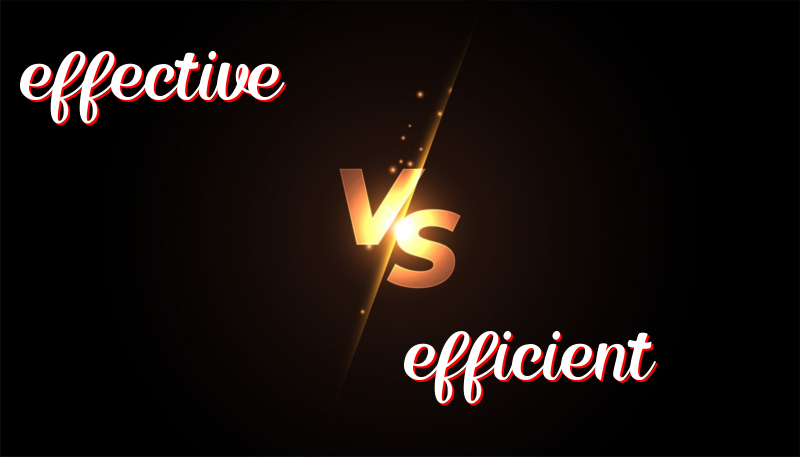Effective vs. Efficient: Knowing the Difference
Effective vs. Efficient
In English, “effective” and “efficient” are two important words. They are often used, but mean different things. Let’s learn about their history, how to use them, and a trick to remember the difference.
History of the Words
“Effective” comes from a Latin word that means “to accomplish.” It means doing something with a good result. “Efficient” also comes from Latin. It means achieving something in a smart way, without wasting time or energy.
How to Use Them
“Effective” is used when we talk about getting the right result. For example, if taking a medicine makes you feel better, the medicine is effective.
- The new teacher is very effective in helping students learn.
- This plan is effective in reducing costs.
- Her speech was effective, and everyone understood her point.
- Eating healthy is effective in staying fit.
- The marketing campaign was effective in getting more customers.
“Efficient” is used when we talk about doing something in a good way with less time or effort. For example, if you clean your room quickly and well, you are efficient.
- The new machine is efficient and saves a lot of time.
- He is very efficient at his job.
- This route is the most efficient way to the office.
- She completed the work efficiently and fast.
- Using a calculator is more efficient than doing math by hand.
Trick to Remember the Difference
Here is a simple trick to remember:
Effective = Gets the work done.
Efficient = Gets the work done well and fast.
Summary
To sum up:
- Use “effective” when talking about achieving the right result.
- Use “efficient” when talking about doing something in the best way, saving time or energy.
Remember, being effective means getting it done. Being efficient means getting it done well and quickly.

Leave a Reply
You must be logged in to post a comment.